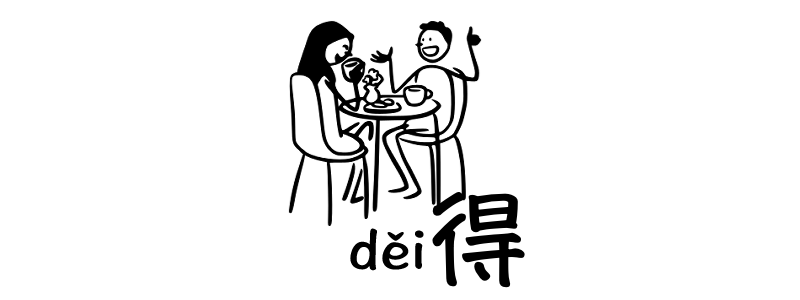Grammar Point:
The Chinese grammar particle 得 děi is used to express the necessity or obligation to do something. It can be translated into English as “must,” “have to,” or “should.”
I know it can be very confusing because it is the same character as 得 de, but actually, you can distinguish between them based on where the verb is located in the sentence. If the verb comes before 得, then it is 得 de. If the verb comes after 得, then it is 得 děi.
Structure
S + 得 + Verb
你得在明天前完成工作你得在明天前完成工作
You have to finish your work by tomorrow.
如果我買給你,回家後你得整理你的房間如果我买给你,回家后你得整理你的房间
If I buy it for you, you have to tidy up your room when you get home.
要學好中文,就得交一個說中文的朋友要学好中文,就得交一个说中文的朋友
To learn Chinese well, you must make a friend who speaks Chinese.
想過得舒服,就得努力掙錢想过得舒服,就得努力挣钱
Want to live a comfortable life, you have to work hard to earn money
我得做什麼,你才願意做我的女朋友?我得做什么,你才愿意做我的女朋友?
What do I have to do to make you willing to be my girlfriend?
要我當你的女朋友,你得等下輩子要我当你的女朋友,你得等下辈子
If you want me to be your girlfriend, you have to wait until the next life.


